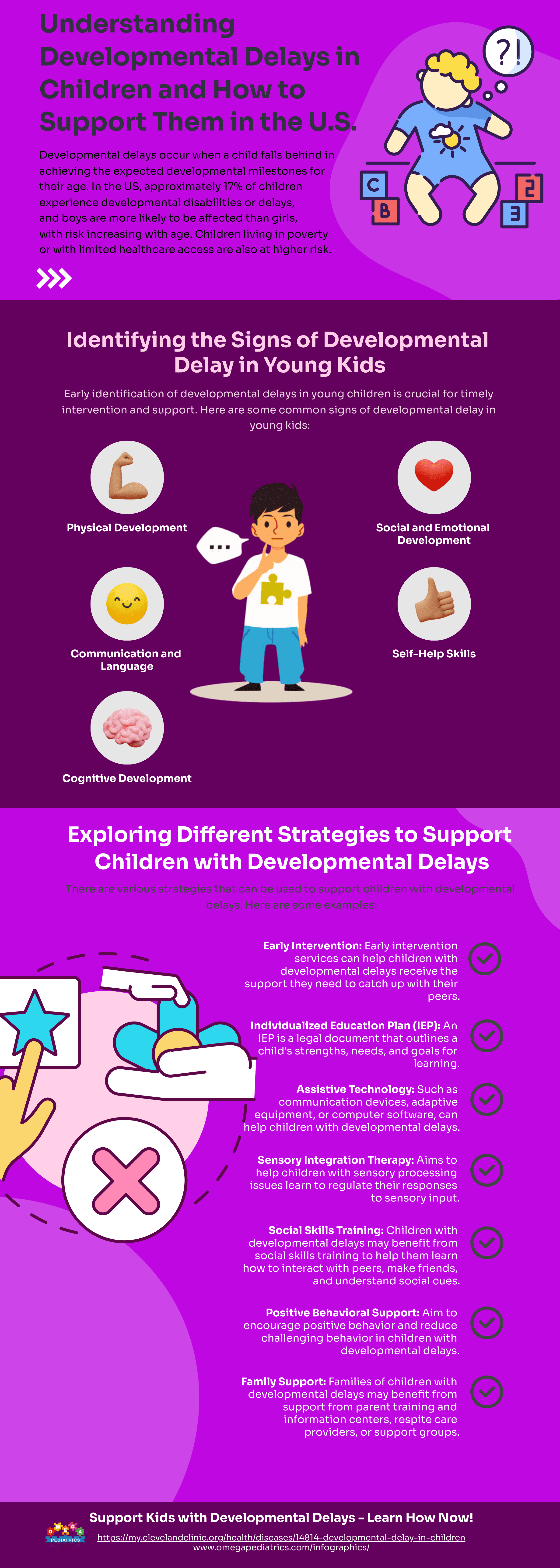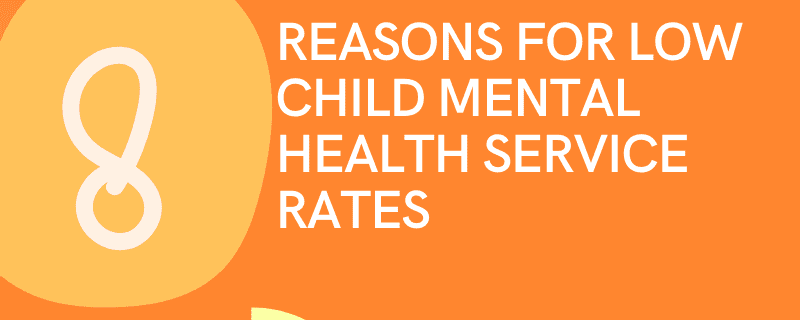 What are Developmental Delays in Children, and How Common Are They?
What are Developmental Delays in Children, and How Common Are They?
When a child does not meet the developmental milestones that are usually anticipated for their age, it is said that the child has developmental delays. These developmental milestones incorporate a variety of domains, including physical capabilities, language and communication, cognitive abilities, social and emotional competencies, and self-help capabilities. Developmental delays can harm one or more areas of development and can range from mild to dangerous.
Developmental delays are usual in children, with around 17% of children in the US experiencing one or more developmental disabilities or delays, according to the CDC. Boys are more likely to undergo developmental delays than girls, and the occurrence increases with age. Children being in poverty or with limited access to healthcare are also at higher risk.
Identifying the Signs of Developmental Delay in Young Kids
Early identification of developmental delays in young children is crucial for timely intervention and support. Here are some common signs of developmental delay in young kids:
- Physical Development: Delays in physical development may include difficulty with sitting up, crawling, standing, walking, or running.
- Communication and Language: Children with communication and language delays may struggle with talking, understanding language, or using age-appropriate gestures.
- Cognitive Development: Cognitive delays can manifest as difficulty with problem-solving, memory, learning, or understanding concepts.
- Social and Emotional Development: Children with social and emotional delays may have difficulty making friends, expressing their feelings, or understanding others’ emotions.
- Self-Help Skills: Delays in self-help skills can include difficulty with eating, dressing, or toileting independently.
It is important to note that every child develops at their own pace, and some variability is expected. However, if a child is significantly behind in one or more developmental areas, or if you have concerns about your child’s development, it is important to talk to your pediatrician or a developmental specialist.
Early intervention services, such as speech and language therapy, physical therapy, or occupational therapy, can help children catch up to their peers and prevent future challenges. Additionally, support from parent training and information centers and community resources can help families navigate the special education system and advocate for their child’s needs.
Exploring Different Strategies to Support Children with Developmental Delays
There are various strategies that can be used to support children with developmental delays. Here are some examples:
- Early Intervention: Early intervention services can help children with developmental delays receive the support they need to catch up with their peers. Services may include speech and language therapy, physical therapy, occupational therapy, or behavioral therapy.
- Individualized Education Plan (IEP): An IEP is a legal document that outlines a child’s strengths, needs, and goals for learning. It is created by a team of professionals, including the child’s parents, teachers, and special education providers, and it can help guide the child’s education and support services.
- Assistive Technology: Assistive technology tools, such as communication devices, adaptive equipment, or computer software, can help children with developmental delays access the curriculum and participate in classroom activities.
- Sensory Integration Therapy: Sensory integration therapy aims to help children with sensory processing issues learn to regulate their responses to sensory input. This therapy can involve activities that stimulate or calm different sensory systems.
- Social Skills Training: Children with developmental delays may benefit from social skills training to help them learn how to interact with peers, make friends, and understand social cues.
- Positive Behavioral Support: Positive behavioral support strategies aim to encourage positive behavior and reduce challenging behavior in children with developmental delays. This approach involves identifying triggers for challenging behavior and implementing strategies to prevent or respond to these behaviors.
- Family Support: Families of children with developmental delays may benefit from support from parent training and information centers, respite care providers, or support groups.
It is important to note that each child’s needs are unique, and support strategies should be individualized and based on the child’s strengths and challenges. Working collaboratively with a team of professionals and family members can help ensure that children with developmental delays receive the support they need to thrive.

 What are Developmental Delays in Children, and How Common Are They?
What are Developmental Delays in Children, and How Common Are They?

